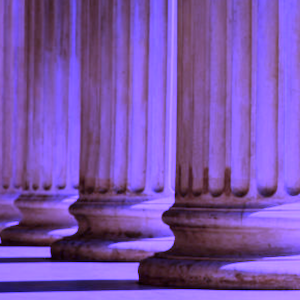
Over the last few weeks, members of Congress and White House staff have been negotiating the next COVID-19 funding package to address ongoing economic issues associated with the pandemic, including the effects on higher education. Senate Republicans and Senate Democrats have both introduced proposals, and the House has already passed its own legislation. These proposals include:
- the Health, Economic Assistance, Liability Protection and Schools Act (or HEALS), supported by Senate Republicans;
- the Coronavirus Child Care and Education Relief Act (or CCCERA), introduced by Senate Democrats; and
- the Health and Economic Recovery Omnibus Emergency Solutions Act (or HEROES), which the House of Representatives passed in May.
Negotiations are expected to last well into August. All three bills contain provisions that benefit higher education. The best elements of each provide much needed support for students and institutions during the pandemic.
Advocacy and Federal Support
Working with presidents and leadership teams, AGB encourages board members to contact members of Congress to request that they support higher education as negotiations continue. The most important advocacy request is funding for institutions and students. The higher education community has established that $46.6 billion is necessary to help institutions weather the financial impact of the COVID-19 pandemic, and another roughly $73.8 billion is needed for institutions to reopen safely (to fund testing, contact tracing, expanded health services, etc.), for a total of $120.4 billion.
- HEALS calls for roughly $29 billion to higher education institutions, and HEROES requests roughly $37 billion. While this is more than was provided in the CARES Act from earlier this year, they both fall short. CCCERA offers $132 billion for higher education, but achieving this level of funding is unlikely.
- Our goal is simply to request as much additional funding as possible for higher education, beyond the “floor” ($29 billion) that HEALS provides.
- Resource: Suggested community talking points
- Resource: Community letter to Congress on higher education funding
Other Legislative Provisions
Based on an institution’s mission and assets, other provisions in these proposals may be important.
- Liability Protection. HEALS includes liability protections for businesses, nonprofits, and other organizations, and holds that defendants are not liable if they implemented all reasonable efforts to comply with applicable public health standards and guidelines. AGB will work to ensure that liability protections are included in the final bill.
- Funding for Minority Serving Institutions. Fortunately, all three bills contain language for additional funding to historically black colleges and universities (HBCUs) and other minority serving institutions (MSIs). AGB supports dedicated funding and other provisions for these institutions, as seen in HEROES and CCCERA.
- Federal Loan Programs. Two loan programs created in the CARES Act to help address the pandemic included the Paycheck Protection Program (PPP) and Main Street Lending Program (MSLP). Neither program currently has benefited many institutions. HEROES would expand the PPP to include nonprofits of all sizes, which would be a beneficial change. In addition, we are requesting that Congress explicitly allow both public and private institutions to participate in the PPP and MSLP (so far, public institutions are not eligible for the PPP and it is ambiguous whether they are eligible for the MSLP). Finally, if any new loan programs include a maximum employee threshold, AGB will advocate that student workers not count toward that threshold.
- Refundable Tax Credits for Colleges and Universities. AGB is requesting that all institutions be eligible for the paid sick and family leave refundable tax credit created in the Families First Coronavirus Response Act. In addition, public institutions should also be made eligible for the refundable employee retention tax credit created by the CARES Act as well as the safe and healthy workplace tax credit included in the American Workers, Families, and Employers Assistance Act.
- Limitations on Funding Based on Endowment Assets. HEALS states that institutions with the largest endowments that paid the endowment excise tax in 2019 would receive 50 percent of their allocation (based on the formula used in HEALS), and all of it must go toward student aid. Since endowment size is not a proxy for financial health, AGB is advocating that the final bill not include this provision.
- Support for Students. AGB supports provisions that would offer temporary relief for new and existing student loan borrowers, and requests that institutions be allowed to use any new aid to assist all students, including DACA and part-time students.
Questions for Board Members
- What unbudgeted costs has your institution incurred due to the COVID-19 pandemic?
- How has COVID-19 affected your institution’s, system’s, or foundation’s financial outlook?
- How best can board members coordinate efforts with presidents and government relations staff to contact members of Congress?
- How will federal and state legislation continue to influence your board’s decisions?

